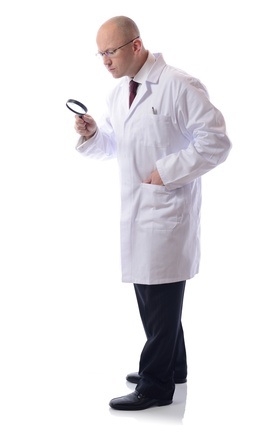Studies have been conducted around the world to determine if acupuncture really works. While Eastern and Western medical philosophies differ in their explanations of how it works, it does not diminish the fact that it does work. The healing tradition has been practiced for over 2,000 years. It has stood the test of time and individuals have experienced profound healing. Take a look at some study results that have recently cropped up:
- Duke University Medical Center anesthesiologists determined that the use of acupuncture before and during surgery significantly reduced the amount of opioid painkillers needed by patients following surgery. By avoiding the side effects of pain medication, patients cans have a swifter, more positive recovery and shorten their hospital stay. A team member said, “Acupuncture should be considered a viable option for pain control in surgery patients” and the results should, “give physicians sitting on the fence the data they need to integrate acupuncture into their routine care of surgery patients.”
- A study analysis conducted at the University of Maryland School of Medicine concluded that acupuncture reduced back pain more effectively than standard treatments and that the pain relief was “significant.” The report stated, “They found acupuncture provided definite pain relief in the short-term, and this pain relief appeared to be sustained over the longer term.”
- The Journal of Midwifery & Women’s Health included a study that found that patients who received acupuncture experienced a significant reduction in anxiety and depression, even one month after treatment. The study’s author wrote, “Anxiety is characterized by an overactive sympathoadrenal system that may be relieved by endorphins; acupuncture has been shown to decrease activity of the sympathoadrenal system and increase the level of endorphins…Acupuncture is a safe and effective treatment for psychological problems.”
- Fox News reported on a study in which individuals with seasonal allergies either received acupuncture or a placebo. Those who received acupuncture treatments, experienced improvement in eye and nose symptoms, higher physical activity, and an improved psychological condition than those who received the placebo treatment. The piece read, “Diagnosing an allergy using traditional Chinese medicine is far more individualized than it would be with Western medicine. Allergies are analyzed by the pattern of symptoms seen in the specific patient, and the treatment is designed to relieve these particular symptoms.”
- A study conducted in Denmark, combined Eastern and Western medical models to determine the correlation between acupuncture and pregnancy. The study assessed women who received acupuncture on the day embryos were implanted in their IVF treatments. Researchers discovered that certain neurotransmitters may be released during acupuncture that affect pituitary gonadtropin secretion, ovarian follicular growth, fertility, and ovulation. According to the results, “Acupuncture administered on the day of ET (embryo transfer) significantly improves the reproductive outcome in women undergoing IVF or ICSI treatment for infertility. The rates of positive pregnancy tests, clinical pregnancies, and ongoing pregnancy or delivery were all significantly higher than those in the control group.”
- A study published in The International Journal of Neuroscience concluded that acupuncture treatments for weight loss showed significant reductions in the subjects’ body weights. Individuals’ metabolisms increased, their appetites were suppressed, their intestinal mobility improved, and it mobilized the body’s energy depots. The study reported, “Acupuncture application depresses the appetite by activating the satiety center in the hypothalamus and increasing sympathetic activity through an increase in the concentration of serotonin in the central nervous system. Acupuncture stimulates the vagal nerve, which has been shown to increase tone in the smooth muscle of the stomach, thus suppressing appetite. It also controls stress and depression via endorphin and dopamine production.”
Evidence is mounting in favor of the holistic treatment. These studies are only the tip of the iceberg. In the future, additional research will bolster beliefs about acupuncture’s efficacy.
Make sure to only see a fully trained and licensed acupuncturist by clicking here.
